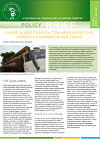Project Overview
The Dryland Sustainable Landscapes Impact Program (DSL-IP), under the GEF-7 Sustainable Forest Management Impact Program, seeks to avoid, reduce, and reverse land degradation, desertification, and deforestation in drylands through sustainable management of production landscapes. Led by FAO with IUCN, WWF, and the World Bank as implementing partners, the program maximizes the efficiency and impact of GEF-7 investments.
Its Global Coordination Project (GCP) provides a programmatic dimension by promoting synergies, cost-effectiveness, transboundary cooperation, and access to regional and global resources. To address region-specific needs, the DSL-IP has established Regional Exchange Mechanisms (REMs) in West Africa, East Africa, Central Asia, and Southern Africa's Miombo–Mopane eco-region, which spans multiple DSL-IP countries.
Project Goal
This project will strengthen the Southern Africa REM by enhancing collaboration and knowledge-sharing among child projects across the Miombo–Mopane landscape. It aims to accelerate, broaden, and sustain impacts through multi-country, multi-actor collaboration; demand-driven capacity development; and structured platforms for joint learning and replication. The project will build on extensive African forestry expertise to facilitate the exchange of lessons, practices, and innovations that inform both policy dialogue and practical implementation.
Expected Outcomes
- Stronger collaboration and coordination among Miombo–Mopane child projects through thematic regional meetings, generating synergies, efficiencies, and reduced duplication
- Programmatic prioritization of key transboundary themes to inform future integrated investments
- Scaled-out impacts across and beyond DSL-IP countries in the Miombo–Mopane region
Project Information
AFF Programme Areas
AFF Enablers
Target Groups
Global & Continental Alignment
- UN Sustainable Development Goals (SDGs)
- Paris Agreement on Climate Change
- UN Convention to Combat Desertification (UNCCD)
- Convention on Biological Diversity (CBD)
- UN Decade on Ecosystem Restoration (2021–2030)
- FAO's Global Drylands Initiative
- Global Mechanism of UNCCD (investment mobilization)
- African Union Agenda 2063
- Great Green Wall Initiative (GGWI)
- African Forest Landscape Restoration Initiative (AFR100)
- African Climate Change and Resilient Development Strategy (2022–2032)
Project Manager
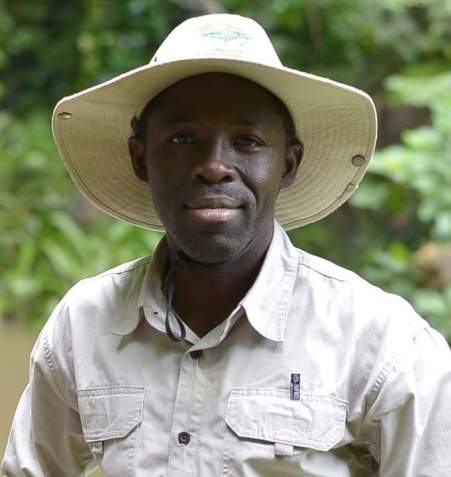
Resources
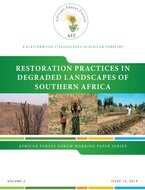
Restoration practices in degraded landscapes of Southern Africa. African Forest Forum, Working Paper Series, Vol. 2 (12)
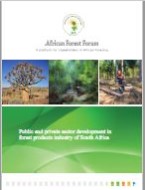
Public and private sector development in forest products industry of South Africa
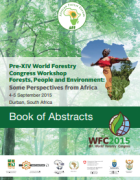
Forests, people and environment: some African perspectives. Southern Forests: a Journal of Forest Science, Vol. 79
